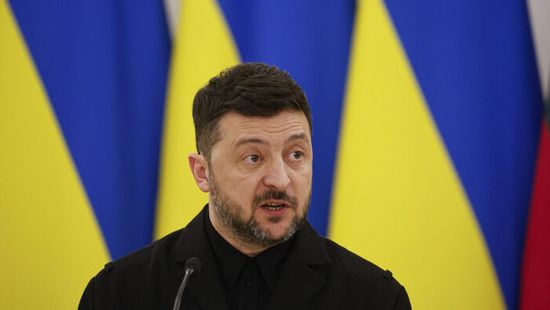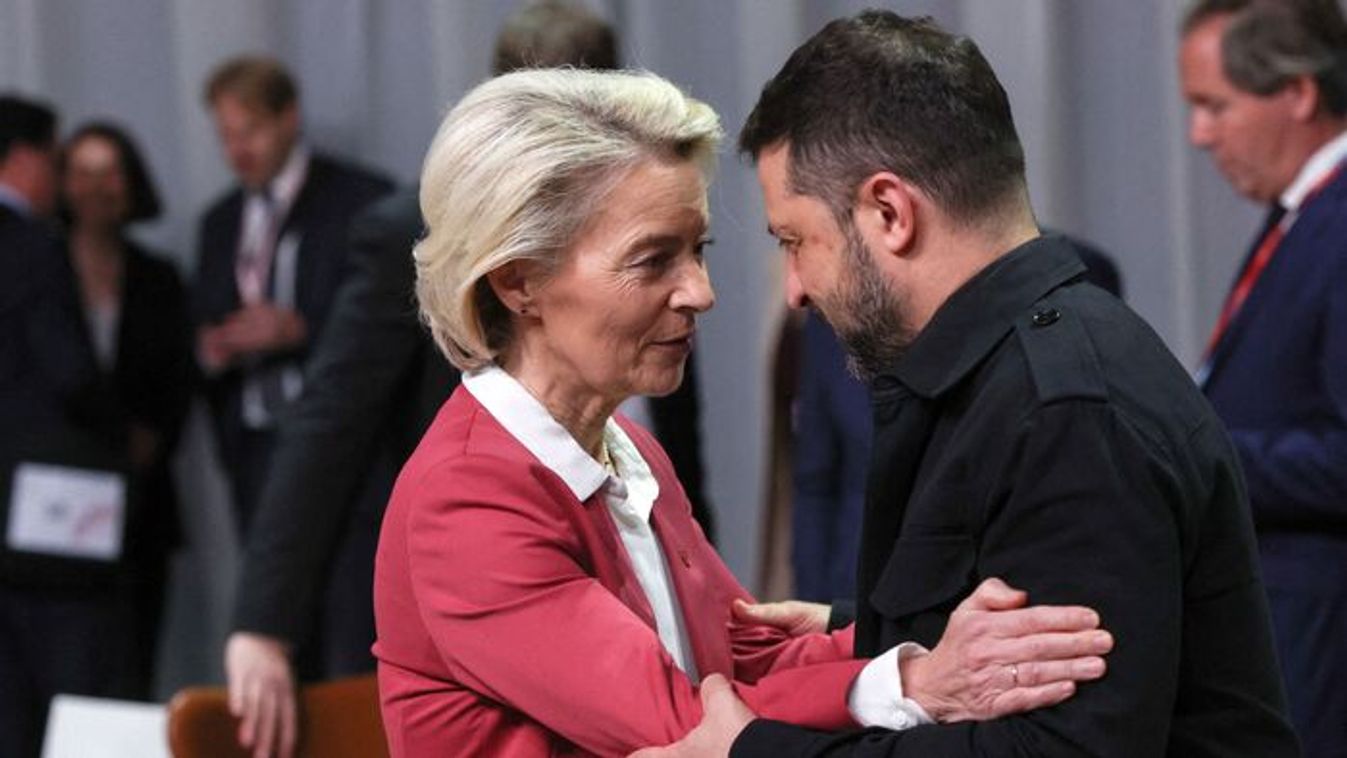Csak két perc: videón a legdurvább ukrán fenyegetések Zelenszkijtől a rettegett ukrán őrnagyig

Magyarország katonai megszállásától a választási eredmények megtámadásáig – minden belefér az EU-s csatlakozást követelő ukrán megszólalók szerint.

Sports continue to embody the virtues, attitudes, and habits that historically elevated Western civilization. Sports continue to embody the virtues, attitudes, and habits that historically elevated Western civilization - pointed out by Jodi Balsam, Professor of Law at Brooklyn Law School in a conversation with Lénárd Sándor.

The Super Bowl has been the biggest sport event in the United States for many decades. For today it is a national festival. What roles do big sport events play in the American life? Are they part of the American way of life and how do they represent it?

Americans share with many other nationalities a passion for sports as an entertainment product, but also as a metaphor and proxy for values and aspirations that transcend borders. Sports events like the Super Bowl, the World Cup, or the Olympic Games enable vicarious participation in athletic achievement and human excellence. They serve a basic human need for camaraderie and community, and for identifying with and taking pride in something greater than oneself. Sports are associated with a host of positive values, including determination, teamwork, self-discipline, and fair play. By demonstrating those values, sports have exceptional power to promote change, and inspire and unite people.
Authentic
athletic competition, free of any fraud or corrupt influence, aligns with quintessential American ideals of equality of opportunity, meritocracy, and hard work.
At the same time, the commercialization and professionalization of sport tracks Americans’ continuing preference for free market capitalism—empowering competitors on and off the field to maximize financial rewards for individual and enterprises. What fascinates is how American sport struggles to reconcile these two forces. Professionalism has delivered to top-class athletes the financial rewards they so deserve, but can lead to fan ambivalence. While fans still throng to the great athletic rivalries and performances, they lament a perceived loss of innocence. An example is college sports, so uniquely American, which are at a critical juncture as those athletes have only recently been permitted to monetize their celebrity. The ensuing market frenzy has raised concerns that creeping professionalism will negatively impact fan allegiance to the college brand of athletic competition.
In its last term, the Supreme Court decided an interesting religious freedom case that involved a high school football coach. Why is this case so important and how often does sport become the center of attention of constitutional debates?
In my Sports Law course, I often refer to “sports law exceptionalism"; how features of the sports industry put illuminating pressure on the law and provide a useful lens through which to examine significant social issues. The decision in Kennedy v. Bremerton School District is one example of this phenomenon, where the Supreme Court ruled that a public school district violated a high-school football coach’s First Amendment rights to free speech and the free exercise of religion when it punished him for praying quietly after the conclusion of games. The case is important in explaining how these freedoms do not conflict with the Constitution’s “establishment clause,” which prohibits the government from establishing an official religion. The Court recognized that U.S. constitutional values include respect for religious expression. Accordingly, visible religious conduct by public school teachers or coaches should not automatically be deemed impermissibly coercive on students, and in this case did not in fact coerce students, as none joined the coach in prayer.
Constitutional issues have also arisen in American sports with respect to personal privacy, generating an interesting exception to a long-standing core principle. The 1995 Supreme Court decision in Vernonia Sch. Dist. 47J v. Acton ruled that Fourth Amendment protection against unreasonable search and seizure bowed to the need to drug-test high school athletes to protect against sports-related injury.
U.S. sports have drawn attention in constitutional debates over free speech rights of athletes who play for the professional leagues. Because the First Amendment applies only to “state actors,” the NFL, NBA, Major League Baseball and all privately held professional sports leagues are free to censor athletes on the job, including punishing conduct disrespectful to the national anthem and American flag. However,
these leagues have largely stayed their hand, based on cultural, as opposed to legal pressures,
that support athletes in their freedom of expression.
In the European culture soccer plays an almost mythical role, especially in the competition of national teams. In recent years, however, soccer seems to become one of the tools of ideological aspirations and struggle. So while soccer embodied the competition of various nations and their cultural attitudes, it is now used to transfer ideas that are many times hostile to that very tradition. One example is that when players are required to take the knee before games even though this has controversial meaning in their respective nation which has not been involved in the very reasons that give rise to the kneeling. How do you see this phenomenon?
This phenomenon manifests the militaristic dimension of sport, which originated as a way to prepare for battle against tribal enemies. To this day in many cultures, athletes are expected to be good soldiers who follow orders and stay on message. U.S. sport was no different for a long time, but recently has turned toward a more pluralistic approach, as illustrated in the autonomy now allowed professional athletes to dissent during opening flag ceremonies. Athletes are increasingly permitted, in some cases encouraged, to express their individuality and publicly support their personal passions. For example, the NFL now promotes “My Cause My Cleats”—an opportunity for players to showcase a cause that is important to them on custom-designed cleats that they wear during one week of the season.
At the same time,
some professional leagues have undertaken top-down social-justice initiatives in tension with a pluralistic and player-led approach.
For example, the National Hockey League in recent years has hosted “Pride” nights to raise the visibility and acceptance of LGBTQ+ people. Several players have declined to wear the special rainbow-colored jerseys issued for Pride nights, citing religious beliefs. Other players in sympathy with Pride may resist the rainbow jersey as communicating too-complete endorsement of the movement’s dilating aims. Russian nationals on NHL rosters have also balked at participating in Pride nights, concerned about their country’s draconian anti-gay laws that criminalize spreading “propaganda” about “nontraditional sexual relations.” Rather than mandating virtue-signaling at events like these, the NHL might be better off letting the players take the lead in social justice initiatives, showcasing those already involved in genuine social change off the ice.
How, in your view, does the rise of the “woke” ideology divided societies throughout the West and erode the traditional ways of life?
The most visible way that
progressive ideology currently intersects with sports is the debate over transgender participation in sports,
in which extremists on both sides have commanded public attention. Progressive advocacy to force females to compete against trans-athletes with male sex-linked physical advantages has been met with conservatives’ absolutist prohibitions on any trans girls and women participating in girls’ and women’s sport. Lost in this conversation is that sports are not monolithic, and that their values and goals can depend on the age of the participants and what’s at stake in the competitions. The desire for sports inclusivity and broad participation can co-exist with fair competition, through measured responses that distinguish between sports at the pre-puberty and recreational levels, and sports at higher levels where more is at stake.
The debate needs to acknowledge that sports have been continuously sex-segregated for centuries in disciplines where male sex-linked advantages affect competitive opportunities for women. The U.S. law known as Title IX explicitly permits girls and women’s sport to exist separate from boys and men’s sport. Policy makers have long understood that from the onset of male puberty, male bodies develop in a way that gives them undeniable and irreversible advantages over female bodies in terms of speed, strength, and power. It is science, not ideology, that dictates the need for appropriate sex segregation in sports. It is not transphobic to recognize the significance of biological sex in sport. But it is also not necessary to exclude all transgirls from all girls’ sports regardless of whether they have experienced male puberty or are undergoing gender-affirming therapies. Inclusion works when it does not harm the female sports competition or the individuals that sex-segregated sport is designed to protect.
At the moment, on the global stage, this issue is being decided by sports governing bodies, often on a sport-by-sport basis, as in the International Olympic Committee’s policy that empowers each international sports federation to set its own rules for transgender participation. The NCAA has adopted a similar approach, deferring to national governing bodies in each sport, which typically allow trans women and nonbinary people to compete only after a period of time on testosterone-suppressing treatment. As for U.S. public school athletics, a state-by-state approach has emerged, leading to a patchwork quilt of conflicting laws and rules that have raised the heat on the issue.
On both sides of the Atlantic, there are renewed efforts to rediscover the traditional and unique American and European ways of life including its virtues that once elevated the Western civilization. What role , in your view does sport play in this?
Sports continue to embody
the virtues, attitudes, and habits that historically elevated Western civilization.
It is true that the current emphasis on sports outcomes tends to reduce the appreciation of athletic achievement to its bottom line: who wins, who loses, and who made money on it. Especially with the advent of legal sports gambling in the U.S. and globalization of sports betting markets, athletic competitions today often communicate less about skill and effort and more about a quick buck. To sustain the dignity and worth of athletic activity
we must continue to recognize and value its very humanity; the human body in action, its grace, rhythm, striving, exertion.
This lived experience, for both the athlete and the spectator, offers an abridged version of the human drama, where we can escape the arbitrariness and inequities of ordinary existence and revel in the deliberate, goal-directed pursuit of excellence.